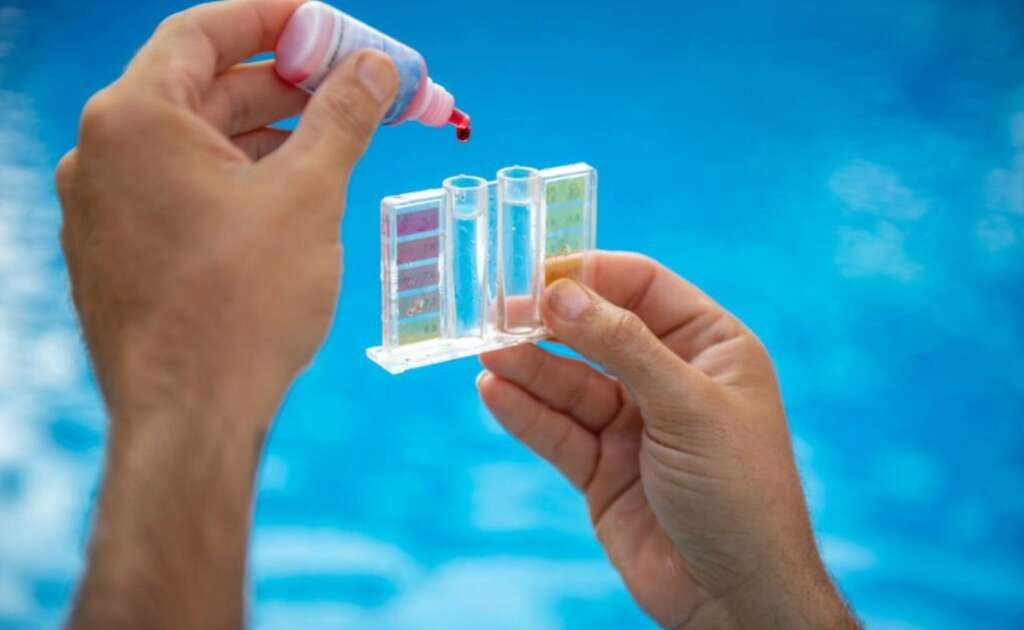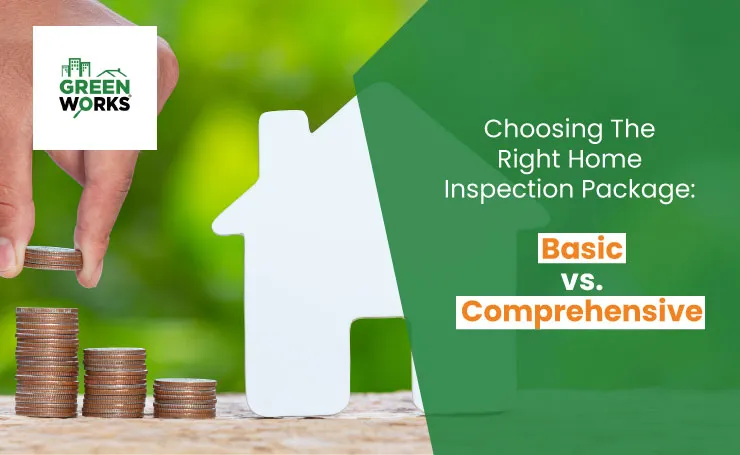Posts

Why Pool Inspection Is Essential in Construction?
Regular pool inspections are vital to keep a check on its chemical balance, equipment condition, and working – and ensure the safety of the swimmers. You never know if a slight mistake will lead to a hefty repair price or sudden pool accidents. That’s where a pool inspection helps. Wondering what is pool inspection exactly? It’s an in-depth assessment of your swimming pool. From checking the pool’s components to evaluating its condition, pool inspectors verify that all.
Understanding the importance of pool inspection is as crucial as getting one. You must have a clear roadmap of what to expect from your pool inspector and what would be covered in your inspection project. GreenWorks Inspections is here to guide you through this.
In this blog, we will discuss the importance of pool inspections and why you should consider them. We will also touch upon the elements or issues that ruin a swimming pool. So, without any further ado, let’s get started.
Importance Of Pool Inspections
The importance of pool inspections is no longer doubted due to the several benefits they bring. They can literally save you from headaches for both.…. hassles and money. Let’s break it down:
Chemical Balance
Keeping a check on the chemical levels of your pool is highly important. The slightest up or down in chemical levels, like chlorine, can cost you big. Proper chemical balance will help you maintain sanitation and water quality. The pool inspectors will check the pH levels, chlorine, cyanuric acid, and more. When the pool water has imbalanced chemical levels, it invites contamination risks. This condition causes itchiness, rashes, or allergy to skin, eyes, or nose. Besides that, it also damages your pool surface, causing discoloration of pool tiles or damaging the surface. This leads to expensive repair or maintenance needs.
Equipment Functionality
A pool has various equipment to keep it in top condition – both physically and functionally. There’s a lot going on underneath the hood when it comes to swimming pools. The pool inspectors check the mechanical and electrical equipment to ensure they function as they should. The inspectors also check for defective or failing pool equipment. This will stop an inoperable pool from hitting your wallet.
Safety Test for Fencing and Decking
Safety around pooling areas like gates, fences, rail, or decks differs from safety inside. The pool inspectors will examine each structure for holes, cracks, detachments, or other hazards. You’ll eventually get peace of mind knowing that your pool is a safe place inside out.
Increased Safety
Safety comes first! A comprehensive pool inspection verifies any potential hazards and confirms a more secure swimming experience for you and your family. It saves you from potential risks like slippery surfaces, protruding drains, or broken protective covers. Spotting the issues during pool inspections will eventually prevent you from any possible injuries or accidents.
Prevent Costly Surprises
Your swimming pool can cause different problems in different weather or seasons. The small problems can turn into big failures if left unchecked. The professional pool inspectors have eyes for spotting issues at a very early stage. A timely inspection catches problems like minor leaks, cracks, or corroded surfaces beforehand. Addressing these issues will save you from repetitive repair and maintenance costs in the long run.
What Are Some Elements That Ruin a Pool
Now that you understand the importance of pool inspections, let’s go through some elements that can ruin a pool. You must be aware of these factors that are silently damaging your pool. So, you can stay vigilant and take a proactive approach when dealing with pool problems. Think of these factors as warning signs that it’s high time to get a pool inspection done.
Chlorine Issues
Imbalanced chlorine levels contaminate the pool water, making it green and cloudy. Would you like to swim in the water like this? No one would! Too much chlorine level in your pool gets irritated. And it creates favorable living conditions for bacteria to grow. Swimming in a higher chlorine water causes skin rashes, itchiness, and allergies. If you notice green or cloudy water, it’s a quick indication that this water has higher chlorine.
Starting The Pump with A “Dead Head”
Sometimes, the air is trapped in the pump or filtration system that an ordinary man can’t figure out on his own. But, the professional inspector knows what to look for there. If you continue to start such a pump with a dead head, this will cause damage over time. Routine pool inspections and releasing trapped air will prevent your pump from starting with a “dead head” when it’s under pressure.
Low Calcium Hardness
When the calcium hardness level is maintained, your pool plaster surfaces will be protected. When it’s too low, the plaster erodes. And the pool surfaces get rough and pitted. This will cut down your pool lifespan and cost you a fortune, time, and often.
Low Water Levels
When water levels drop, the pump motor gets exposed and may burn out. This is a clear indication your pool isn’t in proper working condition. That’s why you must keep a check on the water line. And hire a professional pool inspector to check it’s a safe zone.
Pump Running Time
Running the pool pump daily and for a longer time wears it out before time. That’s why you have to keep an eye on the running time of your pool pump. You can seek help from timers or smart controls. Still, getting regular professional pool inspectors will help you look at run times and get expert suggestions on the spot. This will give you insights into whether you are overworking your pool or not.
Uncleaned Pool
Are you skipping or forgetting to clean your swimming pool often? That’s alarming! Uncleaned or unsensitized pools are breeding grounds for germs, bacteria, or algae to grow. These contaminants can build up and grow. This accumulation pollutes your pool surfaces and its water. Whenever you notice an unclean pool, seek an inspection. Because it’s a clear sign that there’s more to the pool than only impure water.
Final Thoughts
In a nutshell, the importance of pool inspections can never be overlooked. It’s not just another regulatory inspection. But it’s a safety assurance for anyone in your family who has a craze for swimming. Regardless of weather and seasons, your pool could be subject to some unknown problems. That’s what a professional pool inspector looks for.
This blog discussed what is pool inspection and what it covers. We also took you through each aspect inspected during a thorough pool inspection. We also revealed some signs or problems indicating the right time to book an inspection. We hope this was valuable information, and for more like this, scroll through our other blogs.




